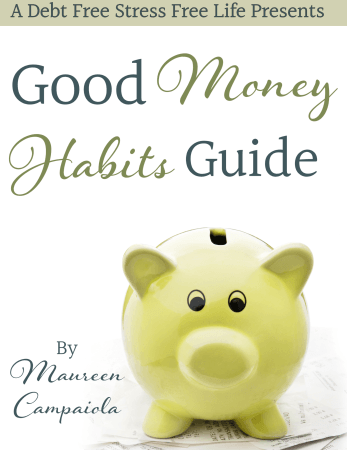A Mess Free Life may collect a share of sales or other compensation from the links on this page.

Table of Contents
Track Your Income
Tracking your income daily is something I learned when I was digging myself out of my financial hole. Years later, I still track my income and expenses although not as intensely as I did in the beginning.
I have an excel spreadsheet where daily I track all income that comes to me from all sources. It doesn’t matter if it’s a check for $1,000 or a rebate check for $1.99. All income that I receive is recorded onto this form. If you’re married or in a partnership, include money from everyone in the house.
** A little energetic money hint: Don’t put a zero on any day where no income is collected, just leave it blank.
What you’ll discover after doing this for a while, is how quickly more and more money begins to come to you. Sometimes it just shows up, like the time I found $5.00 on the street or the time I found $20 tucked under my front seat car mat. It literally will start showing up!
My theory is because you’re paying attention to your money, money decides to start showing up for you. I know that sounds a little out there, but it’s my theory, and I’m sticking to it!
Track Your Expenses
If I were to ask ten people if they liked tracking their expenses, maybe – maybe one person would raise their hand.
I get it; no one likes to track where their money went. I know I hated it and was very, very resistant to tracking.
But here is what I know for sure:
Tracking your expenses automatically leads you to spend less money.
The purpose of tracking is to take a snapshot of your spending habits and figure out where it all goes. It is only by doing this you can begin to change your habits.
Track your spending and you’ll…
• Plug leaks in your spending
• Reduce spending
• See how reducing small amounts in lots of areas add up to something significant
• Begin to live within your means (and save)
• Know where your money is going
Financial freedom will come when you know what happens to every dollar and become reluctant to see it go.
You will become more frugal and thrifty and feel accomplished in doing so.
The first time you track your spending, try not to edit your spending habits. If you can, do this exercise for a month. At the end of the month add up, by category, what you spent during that month.
What you’ll find is you had no idea you were spending that much money and spending it on the stuff you were spending it on.
That’s what happens. Without the data, you’re just guessing where your money is going.
These two exercises that will help you gain a new perspective on your money so you can begin to make better choices.
Additional Resources
Does Living On A Budget Mean You’re Broke?
How To Start The Month Off the Right Way With Your Finances
3 Ways To Save You May Have Overlooked
